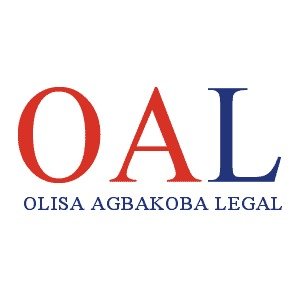Best Elder Law Lawyers in Nigeria
Share your needs with us, get contacted by law firms.
Free. Takes 2 min.
Or refine your search by selecting a city:
List of the best lawyers in Nigeria
Nigeria Elder Law Legal Questions answered by Lawyers
Browse our 2 legal questions about Elder Law in Nigeria and read the lawyer answers, or ask your own questions for free.
- Inherited land
- My elder brother sold our late father's land without telling me. We are the only two surviving sons.We live in our father's compound. He is married with two kids. I'm not married. Should I arrest him or the buyer? how do I get justice
-
Lawyer answer by Recososa Law Firm
Hello: In a situation like yours, under Philippine law, the land left behind by your father forms part of his estate. As heirs, you and your brother have what we call co-ownership under the Civil Code of the Philippines. This...
Read full answer - Family law - Inheritance
- What is the situation in Nigeria when a brother refuses to share their father's property with a sister just because she is s woman? They are from Imo state
-
Lawyer answer by NARAG LAW OFFICE
For all your legal needs, you can rely on us as your comprehensive legal partner. We specialize in corporate law, offering services such as contract drafting, business formation, and legal counsel for corporate transactions. In the realm of criminal law,...
Read full answer
About Elder Law in Nigeria
Elder Law in Nigeria is a relatively developing field of legal practice focusing on the unique issues and challenges faced by the elderly population. This branch of law encompasses a broad spectrum of topics, including retirement planning, estate planning, guardianship, elder abuse, and access to healthcare. Elder Law aims to protect the rights and dignity of older individuals, ensuring they receive the appropriate care and legal rights they deserve.
Why You May Need a Lawyer
There are several common situations where individuals or families might require legal assistance in regards to Elder Law in Nigeria:
- Preparing or updating a will to ensure your estate is managed according to your wishes after your demise.
- Establishing Power of Attorney to allow a trusted person to make legal or financial decisions on your behalf.
- Addressing issues related to guardianship or conservatorship over an elderly loved one who can no longer manage their own affairs.
- Seeking protection from elder abuse, whether it be physical, financial, or emotional abuse.
- Ensuring proper healthcare access and dealing with complex medical and long-term care arrangements.
- Handling cases of age discrimination in the workplace or in the provision of services.
Local Laws Overview
The Nigerian legal framework provides several statutes and protections aimed at supporting and safeguarding the elderly population. Key aspects include:
- Constitutional Protections: The Nigerian Constitution guarantees fundamental human rights, which apply to all citizens, including the elderly.
- Wills Act/Inheritance Laws: Regulations pertain to how an individual can allocate their estate to beneficiaries, including laws governing intestate succession.
- Guardianship Laws: These laws provide guidance on appointing guardians for those unable to make decisions for themselves.
- Anti-discrimination Policies: Regulations exist to protect individuals from discrimination based on age.
- Healthcare and Social Services: There are provisions specific to the elderly within the healthcare system to ensure appropriate care and support.
Frequently Asked Questions
What is Elder Law?
Elder Law deals with legal issues that affect elderly people, including healthcare, estate planning, guardianship, and elder abuse.
When should I consult an Elder Law attorney?
It's advisable to consult an Elder Law attorney when planning for retirement, needing to draft or review a will, requiring assistance with healthcare arrangements, or dealing with elder abuse issues.
What documents should I consider for estate planning?
Key documents include a will, living will, Power of Attorney, and healthcare directive, among others.
How can guardianship be established for an elderly person in Nigeria?
Guardianship can be established through a legal process where a court appoints a guardian to make decisions on behalf of someone who is no longer able to do so themselves.
What are the signs of elder abuse?
Signs can include unexplained injuries, sudden changes in financial situations, withdrawal from family or friends, and neglect of personal hygiene.
Are there protections against age discrimination in Nigeria?
Yes, there are laws that protect against age discrimination in employment and the provision of services to elders.
How can one report elder abuse?
Elder abuse can be reported to local authorities, the police, or social services to ensure the victim's safety and investigate the allegations.
What services are available for elderly care in Nigeria?
Various services include both public and private healthcare facilities, elder care homes, and non-profit organizations focusing on elder rights and care.
Can a will be contested in Nigeria?
Yes, a will can be contested based on grounds such as undue influence, lack of capacity, or non-adherence to legal formalities in its execution.
How do inheritance laws affect the distribution of an estate?
Inheritance laws dictate the distribution of assets for individuals with and without a will, including practices like intestate succession.
Additional Resources
For those seeking more information or assistance, the following resources may be helpful:
- Nigerian Bar Association: For lawyer referrals and legal aid information.
- Ministry of Women Affairs and Social Development: Provides social services support for the elderly.
- Human Rights Commission of Nigeria: For reporting elder abuse and discrimination issues.
- Healthcare Facilities and Organizations: Offering geriatric care and support services in Nigeria.
Next Steps
If you need legal assistance in Elder Law, it is advisable to:
- Consult with an Elder Law attorney who specializes in relevant issues.
- Prepare and organize relevant documents and information prior to your consultation.
- Consider whether you need an immediate protective action, such as obtaining a restraining order or initiating guardianship proceedings.
- Utilize the resources listed above to find appropriate support and guidance.
Lawzana helps you find the best lawyers and law firms in Nigeria through a curated and pre-screened list of qualified legal professionals. Our platform offers rankings and detailed profiles of attorneys and law firms, allowing you to compare based on practice areas, including Elder Law, experience, and client feedback.
Each profile includes a description of the firm's areas of practice, client reviews, team members and partners, year of establishment, spoken languages, office locations, contact information, social media presence, and any published articles or resources. Most firms on our platform speak English and are experienced in both local and international legal matters.
Get a quote from top-rated law firms in Nigeria — quickly, securely, and without unnecessary hassle.
Disclaimer:
The information provided on this page is for general informational purposes only and does not constitute legal advice. While we strive to ensure the accuracy and relevance of the content, legal information may change over time, and interpretations of the law can vary. You should always consult with a qualified legal professional for advice specific to your situation.
We disclaim all liability for actions taken or not taken based on the content of this page. If you believe any information is incorrect or outdated, please contact us, and we will review and update it where appropriate.
Browse elder law law firms by city in Nigeria
Refine your search by selecting a city.

















